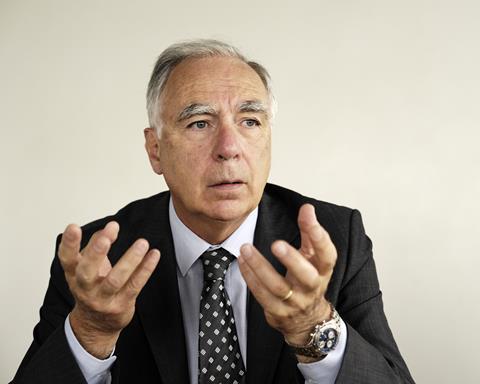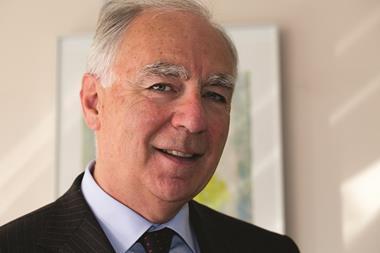In an interview before the conference, the president of the association reveals what is behind its new cyber tool and plans for a new training programme

AMRAE will launch a new cyber booklet aimed at helping risk managers make a case for modifications to existing cyber policies or for new cover to be drawn up, to ensure that they are purchasing the best possible cover that meets their company’s needs.
Gilbert Canameras, Amrae president, will make the announcement in his opening speech this morning, warning delegates that the risk landscape is evolving quickly and that they will need to adapt to cyber risks, which are set to exacerbate with advancements in robotics and artificial intelligence.
Speaking to StrategicRISK before the start of the conference, Canameras said: “Before insurers can provide the best solutions to cyber risks, risk managers have to define the risk for their company.
“Amrae is going to launch a new cyber risk booklet to help risk managers define the cyber risk for their company. They can then present this to insurers to help them get the best possible coverage, whether the case is for modifications to their existing cyber policies or that their insurer may need to draw up new policies.
“Up to now, insurers have provided a range of products for cyber risk but generally these policies cannot be adapted to fit the company’s risk profiles. The booklet that Amrae is launching aims to encourage risk managers to clearly set out their company’s risk profile, which can then be used as a basis to discuss how policies can be adapted.”
He adds that Amrae will also take proactive steps to adapt to the evolving risk landscape and to be closer to its members.
During his opening speech this morning, Canameras will also warn that intangible risks are increasing and if a business suffers from such a threat, the consequences will be costly.
“We are entering a new period where the risk landscape is more complex than it has ever been before,” he said. “Intangible risks are increasing and the consequences from such a risk aren’t necessarily going to be physical damage leading to business interruption (BI) but BI without physical damage. We will need solutions from insurers because BI without physical damage is a growing risk.”
He will encourage risk managers to consider how the evolving risk landscape will change the risk manager’s role.
“We are living in a world that is constantly evolving, new risks are emerging and the role of the risk manager will change as a result.
“For instance, Big Data, cloud computing, self-driving cars and robotics are now a reality and the risks related to these technologies are huge and complex. Risk managers need to prepare themselves for the new risks ahead.
“This is the reason why we have themed the conference “arrêt sur image”. This is a reference to the movie industry, which is fitting because we are in Cannes, but it is also a good way of saying let’s also make a stop to consider what our job as a risk manager currently is and how we can adapt to the evolving landscape.
“Risk management is changing and we need to support that change. Ten to 15 years ago, risk managers had a narrow view, and I include myself in that. They were concerned only by industry-specific and technical risks, looking only at threats that affected their company.
“But in a globalised business world, the job of the risk manager becomes more complex. Risk travels across borders and we can no longer look solely at company-specific risks.
“We now have to take a globalised view, keep a watchful eye on all risks. The risk manager of tomorrow will be a conductor of risk management, providing a solid and clear vision to the board and chief executives and helping them develop a strategy for resilience.
“The risk manager of tomorrow will be a manager who sets the tone and enhances the risk culture of its company.”
Amrae is an advocate for change and has been supporting this by scoping out a new job description for ‘the modern risk manager’. This is detailed in its report Risk manager framework: a professional reference tool. It describes the modern risk manager as “receptive”, “adaptable”, “creative”, “culturally aware” and “resistant to stress”. A risk advisor, who from the top down can “modify actions in the light of a changing landscape”, who “thinks the unthinkable” and who spearheads change for the better.
Training is also important to Amrae and, this year, it will develop a training programme for francophone countries.
“We have acquired a licence from the US-based Associate in Risk Management and will be developing a training programme that we will offer to all francophone countries.
The training programmes will be delivered via the internet and the first subject will be on transport risk and insurance.




















No comments yet